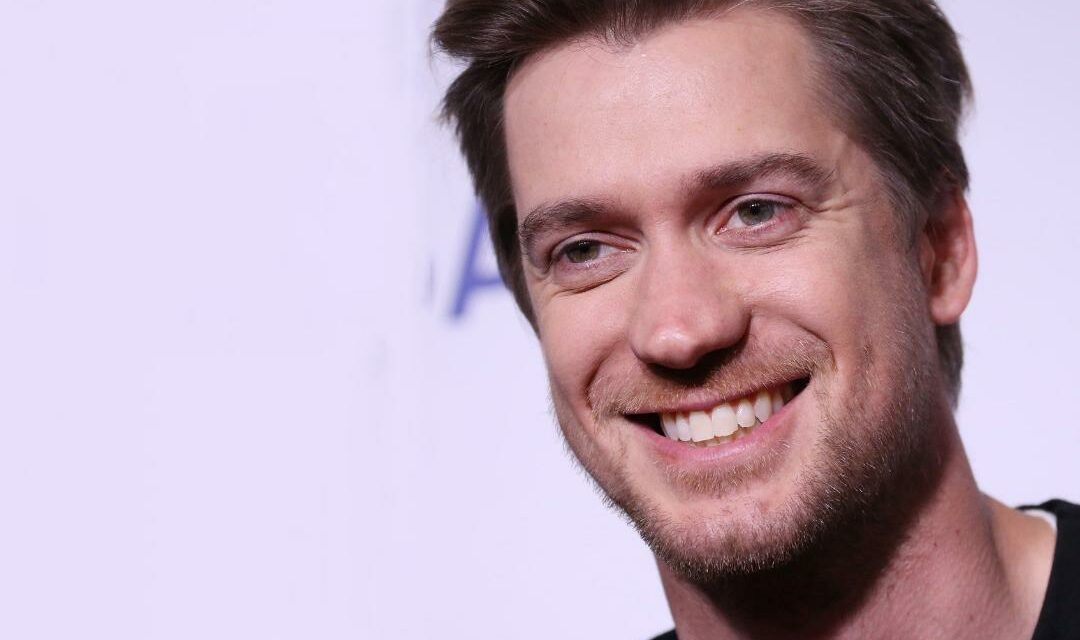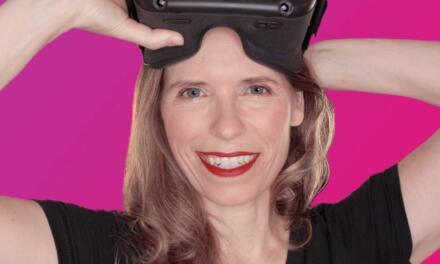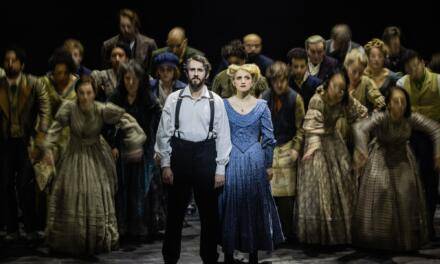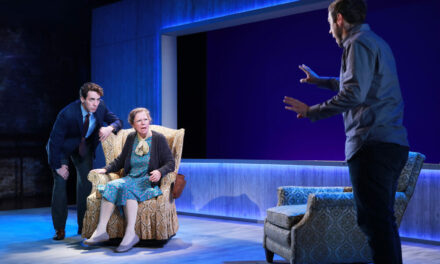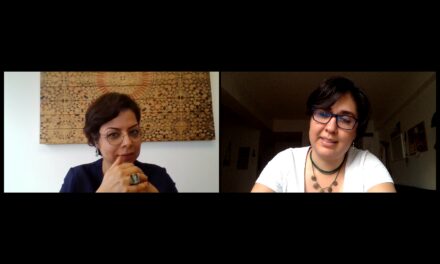The weekend of February 21-24 provided the audiences of the Paramount Center (Boston) with a unique opportunity to experience not only the profound poetic beauty of the award-nominated film Blindspotting* (which has gained critical acclaim, including being on Barack Obama’s list of best films of 2018), but also a fascinating post-show discussion with the Fresh Sound Artist-in-Residence at Emerson College and the co-creator of Blindspotting, the inspiring poet-actor-educator-filmmaker-activist Rafael Casal.
In conversation with The Theatre Times, Rafael shared his thoughts on the intricate connections between theatre, art, poetry, activism, social media, and representation, and the responsibility that accompanies a powerful positionality in the entertainment industry.
*The film Blindspotting tells the story of two Oakland natives, childhood best friends Miles (Rafael Casal) and Collin (Daveed Diggs). Their friendship is tested when they face the life-changing destructive realities of gentrification as one of them anxiously awaits the end of his probation. Directed by Carlos López Estrada and written by Rafael Casal and Daveed Diggs, Blindspotting premiered at the 2018 Sundance Film Festival and was an official selection of the SXSW Film Festival the same year.
Irina Yakubovskaya: Blindspotting has many theatrical or beyond-cinematic elements. It has a very strong dramatic structure; it almost feels like watching an upgraded version of a classical Greek drama.
Rafael Casal: I’m sure what you’re picking up on is just the continuation of how in our work we are trying to speak to the core stories that resonate with people, and we always say that there’s only so many kinds of stories that can be told and retold different ways. We know what the archetypes are, and we were hoping to take a story that was very hyper-specific and really make sure that the people of the region and the city were taking part in this story that is very universal. What feels the most iconic to me is the blending of genres. We’re trying to make a buddy comedy that does not ignore the tragedy of the world, combining two very clear, classic conventions in both theatre and film. We watch the tragedy that unfolds lead to this big climactic, language-based, poetically dense result. To me, the very interpretation of a play element is that it uses heightened language to communicate the core of the story, and it feels at times very Shakespearean, very classic theatre. It’s probably just our [Rafael Casal and his friend and collaborator Daveed Diggs] theatre selves showing through film.
I. Yakubovskaya: Do you consider blended genres to be the future of theatre and the entertainment industry in general?
R. Casal: We’re in an era of arts where the boundaries between mediums and aesthetics matter much less than before. I don’t shop for my music by genre anymore, I don’t engage with film based on what category it feels like it is. I just want to be excited and inspired and entertained and changed. It’s really my only barometer now for art that I take in because it’s in such abundance. I think we used to really need to know what kind of event we were showing up for in the arts, and I don’t know if that’s as important anymore as whether the quality is good. Really, in a marketplace where there’s an abundance of work, quality is the only parameter that matters. For us, we just want to make sure that if we were going to do drama and comedy and heightened language and verse, all those ingredients are high-quality and meaningful. I think as long as you do that, as long as you justify every movement that you take the audience through, you can kind of discard the idea of putting your project into a box or into a category.
I. Yakubovskaya: Your career has been closely interconnected with education. How do you feel about sharing your professional wisdom with students and young artists?
R. Casal: Any time I’m coming in for a moment like that [artistic residency or a college visit], it feels the way that residencies used to feel when I was just a touring spoken-word artist and an educator, which is just like “we’re going to come in, we’re going to do some work, dissect that art, intellectualize the art as much as possible, and we’re going to leave with a greater understanding of the work.”
The academic space–whether that’s working with high school students or college students–it’s really our gym for artists. It’s where we exercise the kind of critical thought that the kind of art I hope to see in the world requires. There are very few moments where we get to have structured partitioning of the work. I’ve always thought of these academic spaces as a place for us to meditate on the things we are most inspired to create around. I’ve always thought of myself more as a creative facilitator, but this role has been identified as that of an educator, or an academic–mostly these are the titles of the capacity of the institutions. When we refer to the creative work we do at the Public Theater with the BARS workshop, [we’re called] workshop’s artistic directors or facilitators. I think it’s really just guiding people’s creativity, and giving it shape and giving it feedback and a sounding board.
I. Yakubovskaya: Do you like to be a mentor to other artists?
R. Casal: Mentorship is this living, breathing capacity that someone else puts you in. I think in the moment where it is my occupation to be in a creative leadership position, [the mentorship] is very clear. My job when I’m working with writers is to give them feedback on their writing, to ask the appropriate questions of the work, to help them find the answers for themselves. That capacity is very clear to me. When working with an actor onstage, I’m just trying to get them to act at the biggest point of sincerity, so that we can put on the show we need to put on. Mentorship exists in so many different forms. I’ve had many great mentors: peers and elders. Some of them I’ve helped with their projects. I think it’s a constantly moving and changing role and identity. It’s really just important to make sure for me, at least, that I’m never speaking with too much authority on anything. [As a mentor], I hear what you’re saying or what you’re trying to communicate, or I’m watching the work that you’ve presented to me, and here–from my vantage point in life, however old and experienced I am, and for art and the life that I’ve lived here–is my reaction to it. This is really all I can provide. And it is really up to the person to take that with whatever grain of salt it’s worth. My mentors have been extremely important to me both in my acceptance of their advice and in my rejection of it. I understand that sometimes it is important for me to say a thing, show that someone I’m working with can strongly disagree with it, and find their truth in that agreement or disagreement.
I. Yakubovskaya: The BARS workshop is (and I quote) “where theatre and verse come together.” Why is verse a vital element of the type of theatre you make and support?
R. Casal: Verse-driven theatre has been around for as long as theatre, really. In [today’s] mainstream, we’ve seen more and more flares of contemporary verse, even whole productions that celebrate that aesthetic. Hamilton is one iteration of what that can look like. When I think about verse in theatre, I just think about heightened and poetic language, and that can be used as abundantly or as sparsely as the writer and creators decide. I don’t think that it implies anything really outside of the idea that we’re going to break a conversation speech pattern in this work either periodically or throughout. I think it just does the same thing that musical theatre does. It just requires the audience to lean in a little bit and listen a little bit more closely. It’s a similar convention to having a song come out when somebody is feeling really emotional, and the moment requires it. We see the way people talk and act onstage change. I think verse functions in the same way. It uses a broader vocabulary, gives us access to metaphors that might sound strange if somebody just said it and everyone paid attention. It can really feel focused in on a certain language and certain words in a way that we couldn’t in traditional dialogue in theatre. I think it’s another tool for writers to use, and it’s becoming slightly more popular. Verse is experimentation in how language can twist and bend to help us tell a story well. I don’t see a division between songs in a play and verse in a play. I don’t see the division between what we do in our movie and how Romeo And Juliet sounds. It’s just an aesthetic that you utilize a lot or a little. I care less about the marketing of this aesthetic for a play or a movie. It’s just something you get when you see [Blindspotting]. It was so wonderful to see how differently people responded to it. Some called it poetry, some called it musical, rap. Everyone was trying to figure out what it was, but really what matters is that they liked it.
I. Yakubovskaya: How do you see the role of the internet in the present and future of performing arts and advocacy?
R. Casal: I think we have to be careful with any platform. It’s a vantage point: the more eyes you have on you, the more social responsibility you have. I also think social media can be a way to obtain power for people who wouldn’t ordinarily have it. We didn’t use to have actors who had a bigger following than the production they were in, or as much influence as the studio that was hiring them. It’s been a lot of corruption in politics in different industries and disciplines. To a certain degree, it can be a great leveler, and it can also offer control of the audience that so many people hadn’t had until now. To control your own audience and your own distribution is radical and revolutionary. I can create art and hand it out to the people who want it. I don’t need anyone to tell me that it needs to be more this or less this or to look this way. I can go direct [to the audience]. It comes with this great risk, and consequence, artistically, but it’s a different level of artistic control. In that sense, it’s great. So many more artists now, post social media, are presenting their politics publicly. Because they feel as though they have a platform and they need to do that. I’m excited to see more of it because I think we so rarely get the opportunity to sort of share what everyone is feeling and thinking. I can’t think of a time [like that] before Twitter, for example. I can see what the conversation of today was in the entire country. It is fascinating. It is not perfect, and algorithms play a weird role, it all comes with its own set of problems and challenges, but if I am outraged or happy about something, or if I want to celebrate or question something, and a huge section of the population is also in that state, I can find them, and we can do that together. I think that’s really powerful. Especially in a capitalist society where power is the greatest commodity, hoarded by a very small group of people. The redistribution of power by amplification of voice is a radical advancement for poor middle- and working-class blue-collar people. I overwhelmingly see it as a huge positive.
I. Yakubovskaya: You are an advocate for inclusion and representation on stage, on screen, and in pop culture. Many people feel the same way, but not everybody is willing to speak out, especially publicly. What inspired you to be an outspoken advocate for diversity of representation?
R. Casal: I think we constantly have to look at the places that we have profound influence over and do our part within the realm that we can indeed influence. It’s that old recycling-ad mentality: “If everyone in the country just recycled one thing a day, this would be fixed.” It doesn’t mean that one person has to go and pick up everything around town to get it to work, but if everyone did their part it would be fine. In the industry that I have influence over, what is my role in this smaller bubble, that can reflect out to other industries and other capacities in the country? So that we can see more incremental changes in our lifetime? We happen to be in an industry like the arts which is very much a mirror of society. What we project can help people see themselves. It has a profound level of influence. If I sit there and I see what I saw my entire upbringing, which was predominantly white faces and white male faces represented in cinema, television, and theatre, I know it is an inaccurate representation of people and stories and of who has value. It is the fundamental problem that I engage with each day, so I have to say something about it because I have power. The further I get into my field, the more power I have. Because [inclusive representation] is related to what I do right now, people are listening to it more–which is great because then I get to add more to the conversation, I get to elaborate more because I know I have people’s ears. We have an industry that for the first time feels like it might actually want to do the right thing. Now it doesn’t actually know how. Now we’re seeing seemingly good people making really poor choices because they lack the language or lack the context or education. They’re relatively new to the issue. I think when we have people who are much better versed in it, we have to speak up and give language to that conversation. And that’s what being a poet was for me in the beginning of my career: I had my language for things that I knew a lot of people were feeling but they didn’t have the language for. When we have the luxury of language around something that everyone wants to talk about or wants to be a part of, we have to lend that language. That’s my job as a writer, as an activist. I have language around the issues, and I can contribute–let me contribute–so that people see eye to eye a little bit more.
This post was written by the author in their personal capacity.The opinions expressed in this article are the author’s own and do not reflect the view of The Theatre Times, their staff or collaborators.
This post was written by Irina Yakubovskaya.
The views expressed here belong to the author and do not necessarily reflect our views and opinions.

